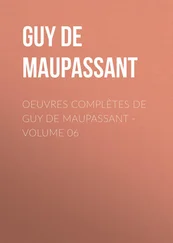She had been too loud. Several patrons had turned from the study of their books to see what the commotion was about. “I’m sure I don’t know what to suggest, miss,” said the clerk coldly, “except that you search our shelves. All our books are arranged alphabetically by author within categories. Just possibly you may find what you are looking for.”
“Thank you very much,” said Vera. “I’ll just do that little thing, if it doesn’t inconvenience.”
After forty-five minutes of hunting Vera thought she might have found what she was looking for in the section labelled Philosophy. The name wasn’t Mountain but it was close. Vera opened the book. The frontispiece was an etching of a grave, sombre man bristling with a huge ruffed collar. He looked exactly like someone who might interest Stanley Miller.
Vera decided to take a chance and buy the book, gamble that she had guessed right, even though the price was steep. She held it up to her nose and smelled it. Real leather. The price alone proved it.
Vera couldn’t help registering the superior smile of the old dragon who had first helped or hadn’t helped her when she rang up the sale. The smirking continued while she wrapped the book in brown paper and tied it in strong cord. Passing it across the counter to Vera, she said, “Just so you know, dear. It isn’t Mountain. It’s Montaigne . In case you’re ever looking again. Saying the name correctly will save you time.”
At that moment it didn’t matter to Vera that the old piece of starch and her biddy friends would be laughing and shaking their heads over her mistake all day long. What mattered was that as soon as she heard the name pronounced she knew she had the right one. That’s what Stanley had said the other night. Montaigne, not Mountain.
She couldn’t wait to see his face. Although the doors of the theatre would soon be opening to the public, Vera flew off in the opposite direction, coat open and billowing behind her as she ran down the sidewalk on her long, strong, young legs.
Stanley was alone in an empty store. He looked different dressed in a navy blue double-breasted suit. Vera judged it could do with a dry-cleaning.
“What’s this?” he said, when she thrust her package into his hands.
“Open it,” she said eagerly. “It’s a little something to make up for the other night.”
It took him forever to pick apart the knot. When the book was finally unwrapped he turned it over, examining it carefully.
Vera could not stand his silence. “Do you have it?” she inquired, doing her best not to sound overly anxious.
“Not this. Not the Florio translation.”
“Then it’s all right?”
“It’s beautiful,” he declared. “A beautiful book.” Then he did exactly as she had done earlier, held the book up to his nose and sniffed the binding. Regretfully, he laid it back down on the counter. “But I can’t accept it,” he said.
Vera was hurt. “Why? Why can’t you?”
“It’s much too expensive a present. Especially for a working girl to give.”
“Nowhere near as expensive as a window,” she said pointing to the sheet of plywood now nailed into the window-frame. “And I can’t help feeling responsible.”
“Don’t talk nonsense. In any case, insurance pays for the window.”
“I want you to have it,” Vera said. “To show my appreciation for your kindness.”
“No, I couldn’t,” he said, picking up the book and holding it out to her. “You know you can’t afford it. Return it and get your money back.”
Vera refused to touch the book. Like a stubborn child she actually hid her hands behind her back and violently shook her head no when Stanley leaned across the counter and tried to prevail upon her to take it back. “Don’t be foolish! Take it!”
“I won’t. If you don’t want it – why, throw it in the garbage.”
He only relented when he realized she was becoming angry with him.
“Well, all right,” he said at last, reluctantly. “Thank you.” But couldn’t stop himself adding, “You shouldn’t have.”
In the course of the next couple of weeks Vera wondered if Stanley wasn’t right – she shouldn’t have. After all, the gift certainly hadn’t encouraged boldness on his part; he gave no indication that he was summoning up the courage to ask her out. It was true that he didn’t have her address, or her telephone number, but every day a little after noon Vera walked past his store on her way to work. He might have just once come out and spoken to her instead of waving to her from behind his new window like a coward.
The whole futile performance made Vera furious, livid. Maybe she ought to have taken back the Montaigne and shown him. But then, what would have been the point? Pride would never have allowed her to return it to the bookstore where she had been treated rudely and snubbed. Of course, she reminded herself, if she had taken the book she wouldn’t have had to go out and find her own second-hand copy of Montaigne, a book she assiduously read each morning in the hope that it would provide some clue to understanding Stanley Miller.
If there was a clue, she hadn’t discovered it. Montaigne was mostly common sense and Stanley Miller mostly wasn’t. Because if he had an ounce of common sense he would have recognized long ago what a good thing was sidling up to his door and purring to be let in.
It never occurred to Vera that Stanley Miller might think himself too old for her, far too ancient for such a young girl. Or that he was concerned that he was a Jew and she was a Gentile. Vera never gave a second thought to Stanley’s being a Jew. In church and Sunday School Jews had been spoken of frequently and approvingly, in fact the Bible was nothing but one long story about Jews. Outside of church, when they were discussed at all, the picture was slightly different. Jews, apparently, were smarter than ordinary folk and many were prone to sharp business practices. “To jew someone” was a commonly used expression in Connaught, like “drunk as an Indian” or “don’t get your Irish up,” but the use was more habit than conscious, directed malice. Since she had no objections to intelligence, rather admired and hankered after it, in fact, and since neither Stanley Miller nor his business looked prosperous enough to sustain a plausible charge of sharp practice, she wasn’t going to be scared off by an old characterization. Besides, the war had proved what sort of people had a prejudice against Jews, pigs like Adolf Hitler, Goebbels, and Goering. Vera believed you could judge someone by his enemies as much as his friends.
Only after they were married had Vera learned that her blindness to Stanley’s Jewishness had left him confused. Did she or didn’t she know? Was it possible that she hadn’t picked up on his allusions to Torah, his Yiddish proverbs? In the months following the wedding, they had laughed together about how he had done everything short of pinning the yellow Star of David on his lapel and gone around proclaiming himself one of the Chosen People. Yet not a word, not a hint that she grasped what he was. Could she be really that much in the dark? Who could tell with these small-town shiksas, these country pumpkins, what they did and didn’t catch? As he had been careful to explain later to Vera, all his life he had been a socialist, a passionate believer in the undifferentiated brotherhood of man. He had lived for the day when words like Gentile and Jew would lose their meaning in the word Man. As far as he was concerned, the word Jew only mattered when it mattered to someone else. After their first meeting, he asked himself, Was that the case with Vera Monkman? Without knowing the answer he was already half in love. Why else did he position himself in the window every noon when she passed on her way to work, if it wasn’t to see and be seen, to wave and be waved to? Why else did he disregard the well-meaning advice an uncle had given him when he was fourteen and beginning to show interest in girls? “Don’t have anything to do with shiksas,” he had been warned. “Your first fight – she’ll call you a dirty Jew.”
Читать дальше












